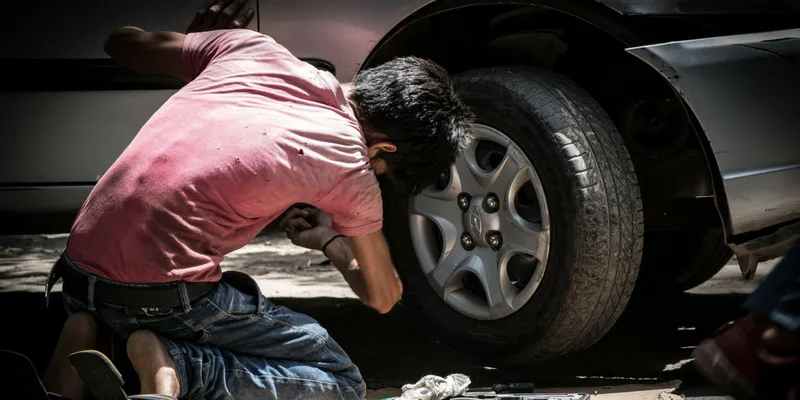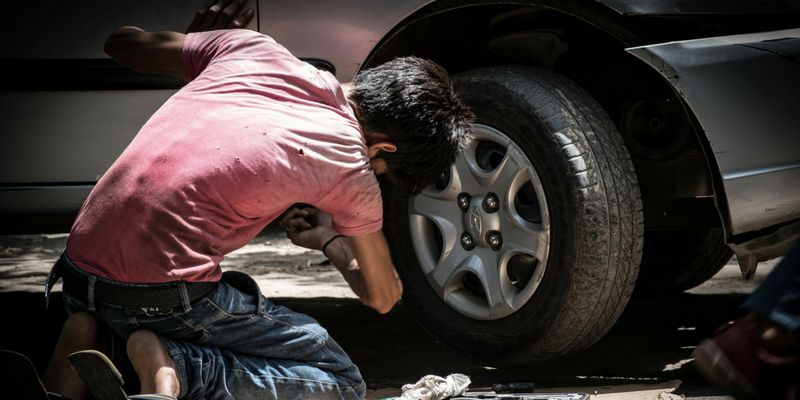Of unlocking doors and other possibilities: why fighting child labour is of paramount importance
Many of us often equate education with wearing a school uniform, picking up a bag full of books, getting attendance marked, and acing examinations. But what we tend to forget about is its potential to unlock doors. Yes, we’re talking about doors which, when unlocked, can lead children to tap their hidden potential – doors to a future that is not bound by limitations of ignorance, and by limited capacity to make independent choices. Education can actually turn around lives, and how...
Come meet Dipu, a 14-year-old boy with adult responsibilities already burdening his little shoulders, and listen carefully to what he says. “I’ve been selling water bottles at the Varanasi railway station since I was eight. My father also sells fruits outside the station. My mother passed away when we were very young. Since then I have been helping my father in running the household. In doing so, I had to drop out of school. I was in the third standard back then. I also have other responsibilities. I look after my two younger brothers, one is 11, and the other is 8. I am the good elder brother. I’m also the tallest among us…”
While the way he takes pride in himself is indeed amusing, the fact that his decision to help his father was not a choice but a compulsion is surely unfortunate.

Now, over to Nisha Kumari, a girl almost Dipu’s age, and hailing from Jharkhand. What does she say? “Even if you are in sports or any other field, education is most important because it teaches you the discipline that defines a successful sportsperson. Of course, I want to make sports my career, but not at the cost of my studies. You never know what happens in life. What if my sports career is short-lived? What if I want to get a decent job after my stint in handball? I want to get a job on my own merit, not as an ex-sportsperson...” Born to a daily wage earner and a sweeper, Nisha Kumari happens to be the vice-captain of the senior girls’ national handball team. She just passed her secondary examinations last year with first division marks.
Notice the contrast. On one hand, there’s Dipu, whose idea of himself is of a water bottle seller and a caretaker of his siblings. Dipu has no inkling of his potential beyond his familial duties. He doesn’t even know how he could turn it around for his father and his siblings had he not had to drop out of school. On the other, there’s Nisha, whose talent in handball got noticed and honed in her school, and her confidence in herself has managed to break free of the financial limitations her family has. She can now dream big – dream of giving her family a better life, dream of playing for India internationally, dream of having an alternate career altogether!
That every child has some talent is a given. It is also given that every child needs a conducive environment for that talent to prosper. Every hidden talent needs to be unearthed first to be nurtured thereafter. When children are allowed or forced into labour, it not only is a terrible violation of their basic right to development but also of their right to a childhood. Employment at such a young age deprives them of proper physical and mental growth. It has an irreversible effect on their overall development.
In the age group of 5-14 years alone, there are 10 million child labourers in our country, according to Census 2011 data. 5.2 million of them do not attend any educational institution. With the amendment in the Child Labour (Prohibition and Regulation) Act in 2016 allowing the children in this age group to work in family-based occupations, the chances of these children ever realising their full potential are negligible. It is a bit too much to expect from these little ones to bear the burden of work responsibilities as well as study simultaneously. Between the two options, economic conditions of the family play a huge role in making work the choice over school.
When children have to put in long hours into work, they are left with no time to play, study, or rejuvenate themselves. Basing a legislation on the assumption that work and studies can go hand in hand seems to be flawed at the very basic level. A closer look into Census data will reveal that with age, the tendency to choose employment over education increases. There are 2.53 million child labourers in the 5-9 age group, 7.59 million in the 10-14 age group, and in the 15-18 age group, the number is a staggering 22.87 million! While 41.1 percent of the children between 5-9 years do not go to school, the percentage increases to 54.6 percent among the children between 10-14 years, and then to a whopping 82.3 percent among children between 15-18 years.
It comes as no wonder when the Child Labour (Prohibition and Regulation) Act allows 15-18-year-olds to work in ‘non-hazardous’ occupations, terms and conditions applied.
The tables have to turn. Child labour cannot be eradicated until work continues to win over school in a choice between the two. The only thing that can protect our children from this exploitative practice is a no-tolerance attitude towards the menace. To ensure that these millions of children who are getting left out of the journey to discover themselves, we must break the apathy around child labour. The time to take action is now.
Puja Marwaha is the CEO at CRY-Child Rights and You.
(Disclaimer: The views and opinions expressed in this article are those of the author and do not necessarily reflect the views of YourStory.)









![[Startup Bharat] Y Combinator-backed BeWell Digital is enabling the digital transformation of radiologists](https://images.yourstory.com/cs/2/40d66ae0f37111eb854989d40ab39087/ImagesFrames31-1648033042143.png)

